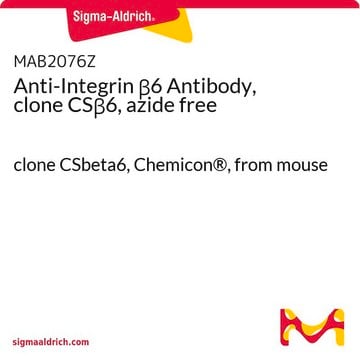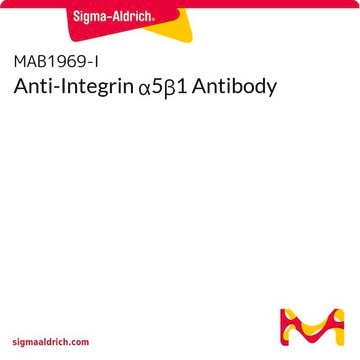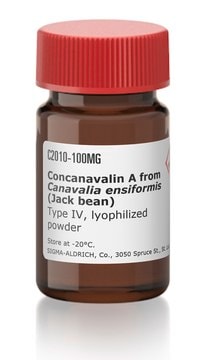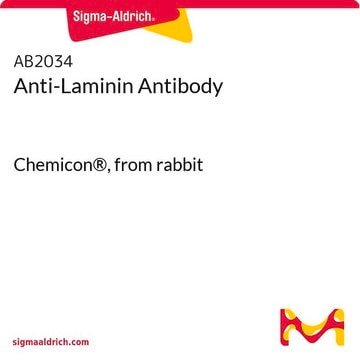AB1920
Anti-Integrin α3 Antibody
serum, Chemicon®
Sinónimos:
CD49c
About This Item
Productos recomendados
biological source
rabbit
Quality Level
antibody form
serum
antibody product type
primary antibodies
clone
polyclonal
species reactivity
porcine, rat, goat, canine, sheep, hamster, equine, pig, bovine, human, mouse, chicken, horse
manufacturer/tradename
Chemicon®
technique(s)
ELISA: suitable
immunofluorescence: suitable
immunohistochemistry: suitable
immunoprecipitation (IP): suitable
radioimmunoassay: suitable
western blot: suitable
NCBI accession no.
UniProt accession no.
shipped in
wet ice
target post-translational modification
unmodified
Gene Information
human ... ITGA3(3675)
General description
Specificity
Immunogen
Application
A 1:1,000 dilution of a previous lot was used in Enzyme-linked Immunosorbent Assay/Radioimmunoassay.
Immunoprecipitation:
5 µL of a previous lot precipitated alpha3/beta1 from 5 x 106 cells (Sherry, D.M., 2001).
Immunohistochemistry/immunofluorescence:
1:500 dilution of a previous lot was used, suggest use on acetone-fixed tissue.
Western Blot Analysis:
1:500 dilution of a previous lot was used.
Optimal working dilutions must be determined by end user.
Quality
Western blot: 1:500 dilution of this lot detected INTEGRIN ALPHA 3 on 10 μg of A431 lysates.
Target description
Linkage
Physical form
Analysis Note
Human fetal foreskin fibroblasts (HFFF), neuroblastomas
Other Notes
Legal Information
¿No encuentra el producto adecuado?
Pruebe nuestro Herramienta de selección de productos.
Optional
Storage Class
10 - Combustible liquids
wgk_germany
WGK 1
Certificados de análisis (COA)
Busque Certificados de análisis (COA) introduciendo el número de lote del producto. Los números de lote se encuentran en la etiqueta del producto después de las palabras «Lot» o «Batch»
¿Ya tiene este producto?
Encuentre la documentación para los productos que ha comprado recientemente en la Biblioteca de documentos.
Nuestro equipo de científicos tiene experiencia en todas las áreas de investigación: Ciencias de la vida, Ciencia de los materiales, Síntesis química, Cromatografía, Analítica y muchas otras.
Póngase en contacto con el Servicio técnico






